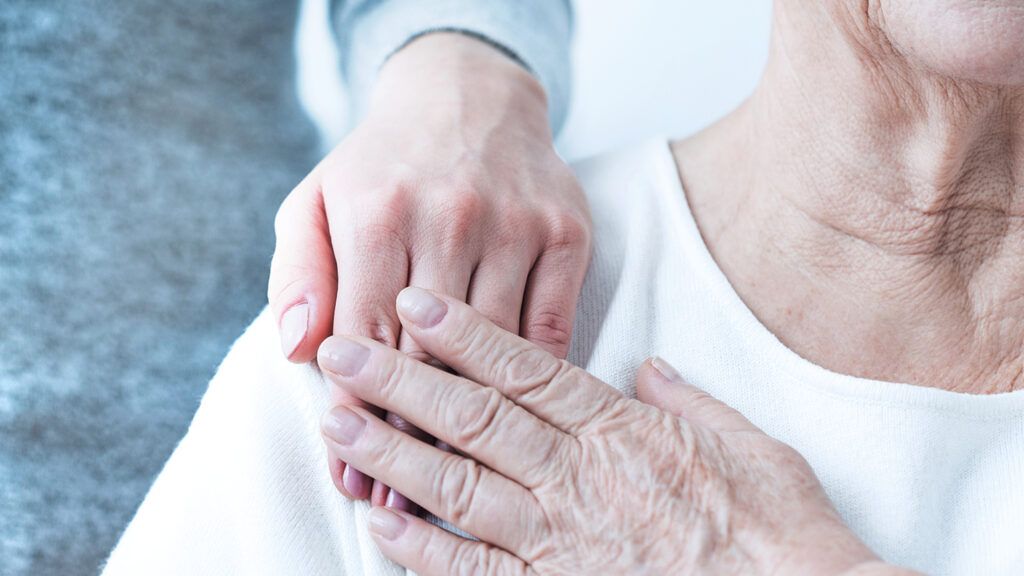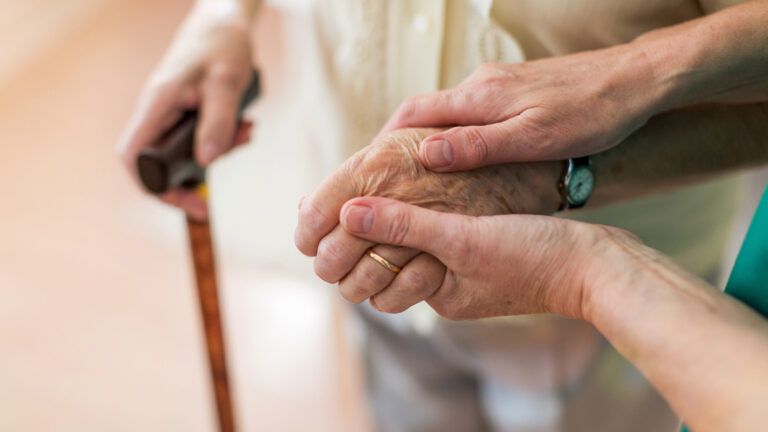One grandparent was still alive when I was born: my mother’s father, Poppop Rossiter, who lived with my aunt Cass. My memories of him are vague, though even at a young age I knew there was something wrong with the old man. He would forget my name and who I belonged to. One benefit: He always gave us grandkids a quarter when we came to visit, and toward the end I sometimes got two, even three quarters. It seemingly slipped his mind that he’d already bestowed his largesse. “Did I give you your quarter yet?” he’d say. I wasn’t about to remind him that he had. Poppop died when he fell one morning in the bathroom. There was no mention of Alzheimer’s in the autopsy. There should have been.
Years later Cass began forgetting things. My notoriously voluble and opinionated aunt’s speech deteriorated to gibberish. Then the same symptoms hit her younger sister, Marion. Finally my mother, Estelle, the youngest, began to lose her mind. Eventually all three Rossiter sisters died from Alzheimer’s, my mother last. People say I am just like her. Now I am wondering how much alike—and hoping not that much because some of my older cousins are already showing signs.
Alzheimer’s is a worry that more and more of us share, both for ourselves and for our parents and older relatives. How will we take care of them, and who will take care of us if it comes to it? Will there be a cure? Nearly six million Americans today are living with the disease, and that number will inexorably rise as the population ages. There are 16 million unpaid Alzheimer’s caregivers in our country already.
We are sharing several stories from a special Alzheimer’s care section in the April 2019 issue of Guideposts that will both inform and inspire you. You’ll meet two caregivers of family members, Kristy Dewberry and newsman Richard Lui, and share in their strength and grace. You’ll find out how you and your family can help find a cure through the Alzheimer’s Prevention Registry, hosted by Banner Alzheimer’s Institute. You’ll also hear from our friends at the Alzheimer’s Association. I invite you to visit a new section on our website devoted to Alzheimer’s caregiving. Go to guideposts.org/caregiving.
It is fitting that this special section appears in our April issue. Twenty years ago this month, my mother died after battling the disease for several long years. The early signs went back even longer, really, when I think about it—the odd memory lapse, the strange misunderstanding of something obvious, the unfinished daily crossword that she always used to finish in pen.
I was not there when she died, but my brother and sister were. In fact they were there for her far more than I was, with me in New York and all of them living near Detroit. My brother and his wife moved Mom into a sweet little house right next door to them. My sister made the drive down from East Lansing several times a week. They were the ones whom the wonderful folks at the care facility Mom eventually went to called. So it didn’t seem fair that whenever I showed up, Mom’s eyes would dance and her smile would bloom like a sunburst, even at the end. It made me a little sad.
I spent more than a week with her, though, near the end, so my brother and his wife and kids could take a long delayed vacation and my sister could have a break. Mostly I sat on the love seat in Mom’s room, watching her sleep in a little four-poster bed, framed pictures arrayed on her dresser. In the afternoon, the spring sun would stream in and settle on her like a blanket. Mom waited until I left, my brother and his family returned and my sister came down. Then she died.
I sometimes dream of that little bed. Sometimes I am in it, which is both upsetting and in a strange way reassuring. Mostly though it is about Mom, sleeping peacefully in the light.
For more inspiring stories, subscribe to Guideposts magazine.





